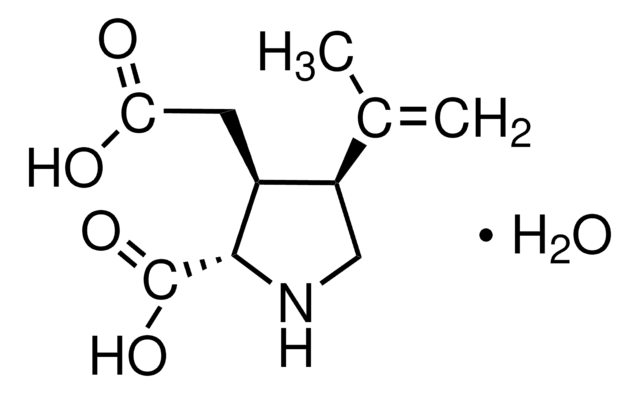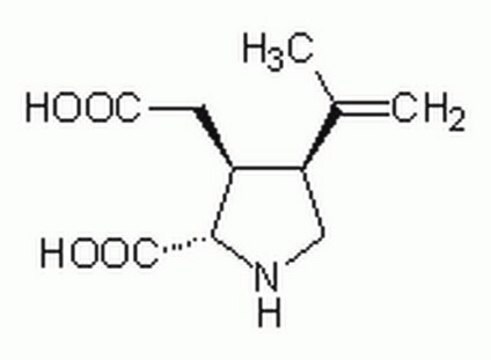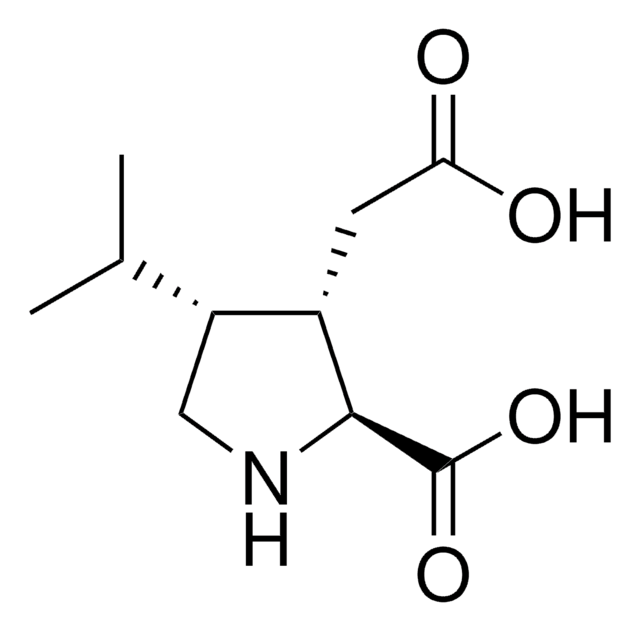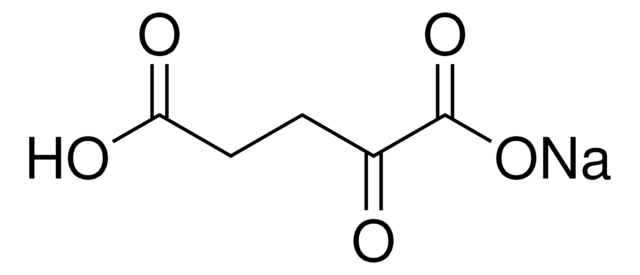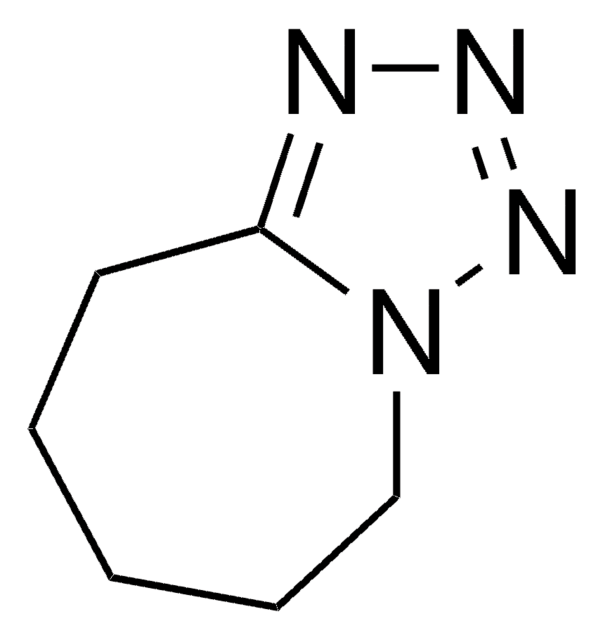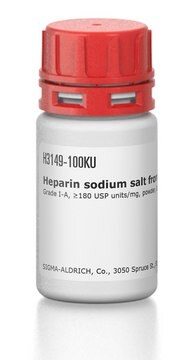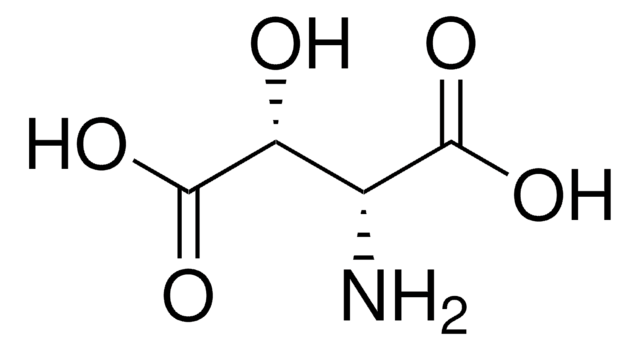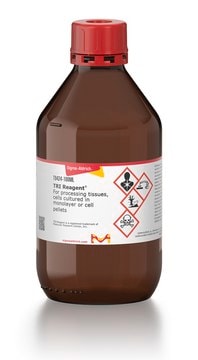K2389
Kainic acid monohydrate
≥98% (HPLC), from Digenea simplex
Synonym(s):
2-Carboxy-3-carboxymethyl-4-isopropenylpyrrolidine
Sign Into View Organizational & Contract Pricing
All Photos(1)
About This Item
Empirical Formula (Hill Notation):
C10H15NO4 · H2O
CAS Number:
Molecular Weight:
231.25
MDL number:
UNSPSC Code:
12352106
PubChem Substance ID:
NACRES:
NA.77
Recommended Products
biological source
Digenea simplex
Assay
≥98% (HPLC)
form
powder
color
white
solubility
H2O: >10 mg/mL
storage temp.
2-8°C
SMILES string
O.CC(=C)[C@H]1CN[C@@H]([C@H]1CC(O)=O)C(O)=O
InChI
1S/C10H15NO4.H2O/c1-5(2)7-4-11-9(10(14)15)6(7)3-8(12)13;/h6-7,9,11H,1,3-4H2,2H3,(H,12,13)(H,14,15);1H2/t6-,7+,9-;/m0./s1
InChI key
FZNZRJRSYLQHLT-SLGZUKMRSA-N
Looking for similar products? Visit Product Comparison Guide
Application
Kainic acid monohydrate has been used:
- As a convulsant to induce epileptogenesis and epilepsy in mice.
- To stimulate in vitro excitotoxic trauma in spiral ganglion neurons on inner hair cells.
- To induce seizures in rat model.
- To induce status epilepticus in adult male Wistar rats.
Biochem/physiol Actions
Agonist for kainate class of ionotropic glutamate receptors.
Ionotropic glutamate receptors form ion channels, and conduct Na+ and K+ fluxes. The receptors possess an agonist binding site and it encounters a conformational change upon agonist binding to it. Kainate gated channels participate in glutamate-induced excitatory postsynaptic neuronal potential.
Kainic acid monohydrate is an agonist at the kainate class of ionotropic glutamate receptors, which induces seizures and neurodegeneration in vivo and is used to induce experimental epilepsy in rodents and study the mechanisms of excitation-induced neuronal apoptosis.
related product
Product No.
Description
Pricing
Storage Class Code
11 - Combustible Solids
WGK
WGK 3
Flash Point(F)
Not applicable
Flash Point(C)
Not applicable
Personal Protective Equipment
dust mask type N95 (US), Eyeshields, Gloves
Choose from one of the most recent versions:
Already Own This Product?
Find documentation for the products that you have recently purchased in the Document Library.
Functional role of neurotrophin-3 in synapse regeneration by spiral ganglion neurons on inner hair cells after excitotoxic trauma in vitro
Wang Q and Green SH
The Journal of Neuroscience, 31(21), 7938-7949 (2011)
Basic Neurochemistry: Molecular, Cellular and Medical Aspects. (2005)
David P D Woldbye et al.
Brain : a journal of neurology, 133(9), 2778-2788 (2010-08-07)
Gene therapy using recombinant adeno-associated viral vectors overexpressing neuropeptide Y in the hippocampus exerts seizure-suppressant effects in rodent epilepsy models and is currently considered for clinical application in patients with intractable mesial temporal lobe epilepsy. Seizure suppression by neuropeptide Y
Diffusion tensor MRI of axonal plasticity in the rat hippocampus
Laitinen T, et al.
Neuroimage, 51(2), 521-530 (2010)
Carlos G Martinez-Moreno et al.
International journal of molecular sciences, 20(18) (2019-09-13)
In addition to its role as an endocrine messenger, growth hormone (GH) also acts as a neurotrophic factor in the central nervous system (CNS), whose effects are involved in neuroprotection, axonal growth, and synaptogenic modulation. An increasing amount of clinical
Our team of scientists has experience in all areas of research including Life Science, Material Science, Chemical Synthesis, Chromatography, Analytical and many others.
Contact Technical Service